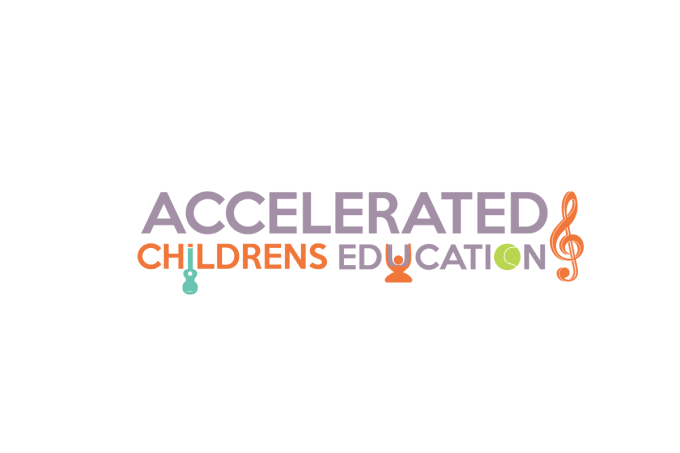Music
David Johnson, Director of Music,
Accelerated Childrens Education
david@acceleratedchildrenseducation.org
760-774-9467
GENERAL MUSIC
CURRICULUM GUIDE
Accelerated Childrens Education
I. PHILOSOPHY
General Music
Accelerated Childrens Education believes that the basic purpose of music education is to create interest, develop, and nurture the student’s innate sense of musical skills.
We believe and accept the idea that the study of music: cultivates the whole person, engaging the mind, body and spirit. builds many kinds of literacy while developing intuition, reasoning,
dexterity and imagination. invites multiple ways of cognition which actively engage the brain learning. fosters unique, vital forms of communication, bringing excitement and
exhilaration to the learning process. embraces ambiguity-encouraging students to wonder and question. develops both individual initiative and collective responsibility. connects cultures and generations, past and present. has commonalities but must also be respected as a distinct discipline.
We believe the primary goal of our music program will allow young people
to nurture a positive self image by developing self awareness and self discipline.
We believe the teaching of music at Accelerated Childrens Education encourages
students to be fluent in thought, flexible in acceptance, sensitive to feeling,
creative in experimentation, aware of moral attitudes, inventive in their work,
imaginative in creation, poised in presentation, cooperative in social interactions
and appreciative of the work of others.
II. PROGRAM DESCRIPTION
We believe that the purpose of the music curriculum is a vital and very basic one. It is to provide a sequential and consistent guide by which music may be taught to a student from little or no musical background; to a having a solid base where they can express
themselves musically. A student who is musically literate and has enough knowledge may enter into the curriculum where it best suits them. In this case, simple testing for musical knowledge, skill and ability will be able to determine where the student should be placed in the program. Beginning in the early childhood years with fundamental experiences in the basic elements of music: rhythm, melody, harmony, form, tone color and expression, the students begin to realize, appreciate and understand the importance of music in their lives. Through singing, listening, rhythm making, creating and instrumental experimentation; skills, attitudes and concepts will begin to develop and accumulate. The General Music curriculum for Accelerated Childrens Education will encompass many facets of a music education. The concepts and skills on the pages to follow allow for a well-rounded music education. The musical experiences and suggestions are just that and should be modified to the individual needs of the students as well as the educator. The suggested experiences are benchmarked for a sequential program in the areas of singing, moving, listening, instrument playing, creating and reading. The music literature should be of high musical caliber and age appropriate. It is our goal as a music department that a varied and well-rounded music education will develop an appreciation of music in our students and enrich the quality of their lives both now and in the future.
III. PROGRAM GOALS
It is the goal of the music department to give the students of Accelerated Childrens Education an opportunity to investigate the diverse areas in music open to them
and let them choose and explore those to their liking. It is our desire that the
students will gain a background in the basics of music. They will develop an
appreciation of music and enrich the quality of their lives now and in the future.
This music curriculum includes the six elements of music: rhythm,
melody, harmony, tone color, form and expression. Originality, creativity and
self-expression are stressed throughout each lesson taught. A scope and
sequence is evident in this curriculum, as well as an understanding of the
student’s growth and development in music.
Additional goals will:
1. Provide the opportunity for students to develop skills to express feelings and
ideas through music production.
2. Present the music program as a creative challenge to all students providing
for skill development in the area of critical thinking and problem solving.
3. Give students an opportunity to explore music in the context of personal
interests and aptitude including the development of communication skills both
verbal and written.
4. Encourage students to achieve an appreciation of music, which will assist
them in understanding it’s use and value historically and culturally.
5. Develop student awareness of the relationship of music with important
aspects of daily living including its necessary functions for various career
pursuits.
6. Provide the opportunity for visibility of the school music program via students’
concerts as both a reflection of student achievement and a vehicle to
communicate the value of music education to the community.
Aesthetics
The student will:
1. develop knowledge and skills that strengthen and sharpen
aesthetic awareness in music.
2. develop the ability to evaluate works of music based on aesthetic
principles and musical elements using higher order thinking skills.
3. develop and demonstrate an appreciation of music.
Creation and Performance
The student will:
1. develop perceptual, intellectual and technical skills in creation of
music.
2. identify and develop an understanding of the elements, media,
and the unique qualities which produce musical outcomes.
3. develop skills for the safe use of materials, technology and
procedures.
4. develop skills for musical expression through the use of
contemporary technologies.
5. demonstrate self-awareness, creative thinking, confidence,
self-discipline, collaboration, and risk-taking in music.
Critique
The student will:
1. develop critical thinking skills by observing, describing,
analyzing, interpreting, and evaluating the musical content of
music.
2. demonstrate an acceptance of constructive criticism and the
ability for ongoing self-evaluation.
3. demonstrate awareness and understanding of music related
careers, leisure activities, and personal life skills developed.
4. develop an understanding of the academic importance of music
and its potential for interdisciplinary relationships with the curricula.

